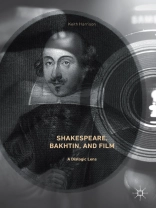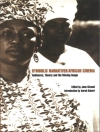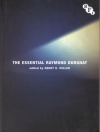This book explores how Bakhtin’s ideas can illuminate the compelling but uneasy fusion of Shakespeare and cinema. With a wide variety of tones, languages, cultural orientations, and thematic concerns, film directors have updated, translated, transposed, fragmented, parodied, and geographically re-situated Shakespeare. Keith Harrison illustrates how Bakhtin’s interlinked writings in various fields can fruitfully be applied to an understanding of how the ongoing responsiveness of filmmakers to Shakespeare’s historically remote words can shape self-expressive acts of co-authoring in another medium. Through the use of such Bakhtinian concepts as the chronotope, heteroglossia, the carnivalesque, and polyphony, Harrison details how filmmakers—faithful to their specific cultures, genders, geographies, and historical moments—dialogically locate their particularity through Shakespeare’s presence.
Table des matières
1. William Shakespeare and Mikhail Bakhtin: Filming Dialogically.- 2. Chronotopes and Categories of Shakespeare-inflected Films.- 3. Chronotopic Images and Cinematic Dialogism with Shakespeare.- 4. Kurosawa, Kozintsev, Kaurismäki, and Almereyda: Hamlet and Transnational Dialogism.- 5. Withnail and I: The Ghost of Shakespeare.- 6. Bakhtinian Polyphony in Godard’s King Lear.- 7. Shakespeare Shaping in Dogme95 Films, and Bakhtin’s Theory of Tragedy.- 8. Scotland, PA: Parody, Nostalgia, Irony, and Menippean Satire.- 9. Romeo and Juliet, Polyglossia, and the Romantic Politics of Deepa Mehta’s Water.- 10. Unfinalizability and Cinematic Shakespeare.
A propos de l’auteur
Keith Harrison is Academic Emeritus of English and Creative Writing & Journalism at Vancouver Island University, Canada. He has written two dozen scholarly essays on a variety of topics and has published five novels, including Eyemouth and Furry Creek. His literary papers are held in Special Collections at The Simon Fraser University Library, Canada.












